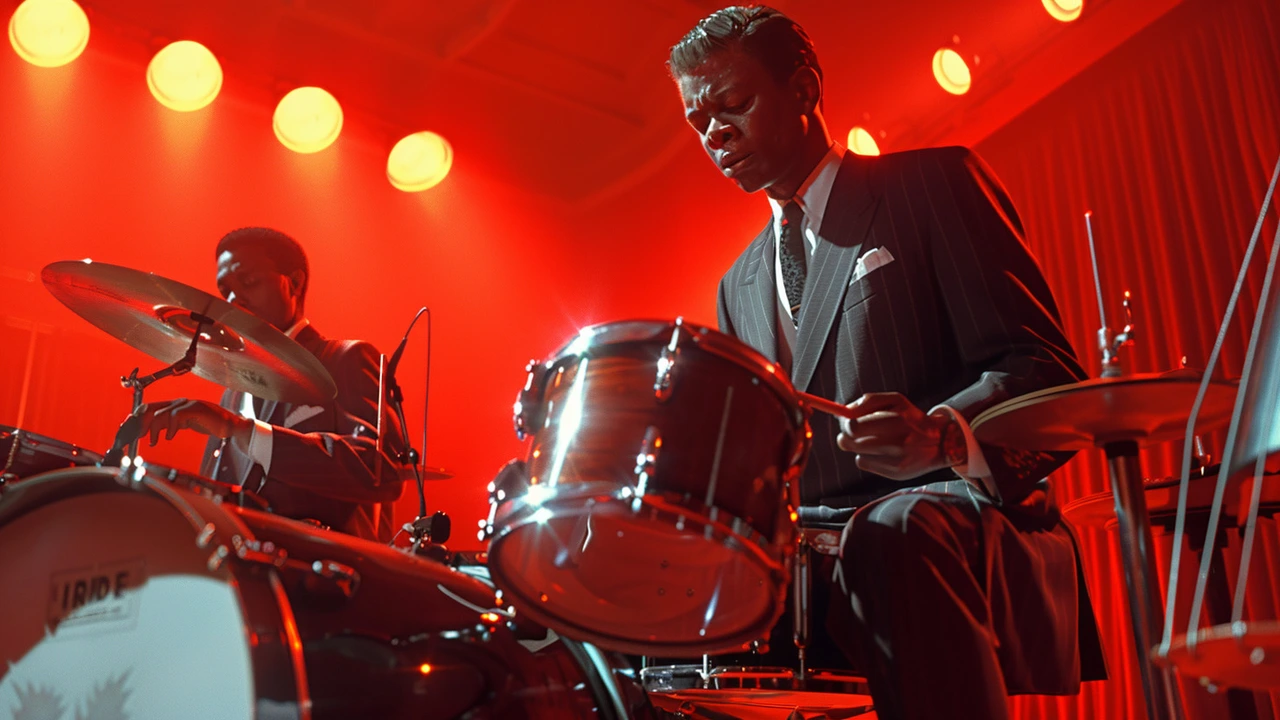Introduction to the Jazz Phenomenon
Jazz, a genre that originated at the dawn of the 20th century, has woven its vibrant threads through the fabric of music history. It's a genre that resonates with freedom, pioneering spirits, and an essence of improvisation that mirrors life's unpredictable journey. What started in the spirited communities of New Orleans has blossomed into a profound cultural force that has shaped the world in remarkable ways.
The story of jazz is not just a musical narrative; it's a reflection of societal change, challenges, victories, and the endless quest for expression. It's about the musicians who dared to experiment and the audiences who opened their hearts to new sounds. Jazz has served as a mirror to society, evolving with each era, reflecting the complexities and beauties of human life.
The Roots and Evolution of Jazz
Jazz's journey began in the late 19th and early 20th centuries, deeply embedded in the African American communities of the South. It was a melting pot of musical styles, drawing from blues, ragtime, and African rhythms. These elements fused together, creating a sound that spoke of hardship, resilience, and the pursuit of freedom. As it evolved, jazz became a symbol of cultural amalgamation, bringing together various musical elements and influencing countless genres.
The 1920s, known as the Jazz Age, marked the explosion of jazz onto the mainstream scene. Legends like Louis Armstrong and Duke Ellington became household names, transcending cultural barriers and introducing the world to the art of swing. Jazz clubs sprang up in cities across America and beyond, becoming hotbeds of creativity and innovation.
Jazz as a Catalyst for Social Change
Jazz music hasn't just been a cultural phenomenon; it's been a powerful tool for social change. It played a significant role in the civil rights movement, serving as a voice for African Americans fighting for equality. Jazz musicians, with their groundbreaking performances and outspoken personalities, challenged the status quo, using their art to advocate for racial integration and social justice.
"Music can change the world because it can change people." - A quote often attributed to Bono, deeply resonates within the essence of jazz.
Moreover, jazz has been instrumental in breaking down racial barriers in music, creating mixed-race bands and fostering environments where musicians are judged by their talent, not their skin color. It's a testament to the genre's ability to transcend societal norms and bring about significant cultural shifts.
The Innovators and Icons of Jazz
The landscape of jazz is dotted with figures whose contributions have left an indelible mark on the genre. Icons like Miles Davis, with his experimental approach, pushed the boundaries of jazz, introducing the world to modal jazz and jazz fusion. Billie Holiday, with her emotive voice, tackled complex social issues through her music, leaving a legacy of emotive storytelling.
These musicians and countless others have paved the way for future generations, inspiring a continuous evolution of the genre. Their innovations have not only shaped the landscape of jazz but also influenced various other music genres, demonstrating jazz's pervasive impact on the musical world.
Jazz's Role in the Evolution of Music
Jazz has acted as a breeding ground for musical experimentation, influencing the development of several genres. Its emphasis on improvisation and collaboration has seeped into rock, hip-hop, and even classical music. Jazz's influence can be heard in the complex harmonies of The Beatles, the sampling techniques of hip-hop artists, and the improvisational aspects of modern electronic music.
This cross-pollination has enriched the musical landscape, proving jazz's role as a catalyst for innovation. It's a genre that refuses to be confined, continuously evolving and influencing the tapestry of global music.
The Global Spread of Jazz
Jazz's influence has not been limited to the United States; it has permeated cultures around the world. From the jazz cafes of Paris to the energetic scenes of Tokyo jazz clubs, the genre has found a universal appeal. This global spread has led to the emergence of distinctive jazz styles, reflecting the unique cultural nuances of each region.
As jazz continues to evolve globally, it fosters a sense of unity and cultural exchange, proving music's power to transcend geographical and cultural boundaries.
The Enduring Legacy of Jazz
The impact of jazz on society and music is undeniable. It's a genre that has championed innovation, freedom, and expression. Even today, jazz continues to influence modern music, culture, and social movements. Its legacy is one of creativity, resilience, and an unwavering pursuit of authenticity. As we look towards the future, jazz's spirit of innovation and its role as a cultural bridge will undoubtedly continue to shape the world in profound ways.

Write a comment